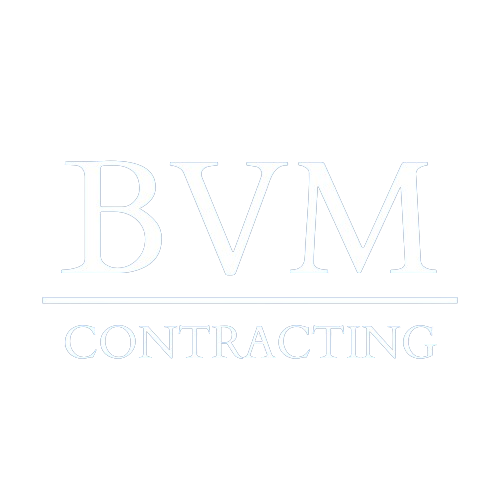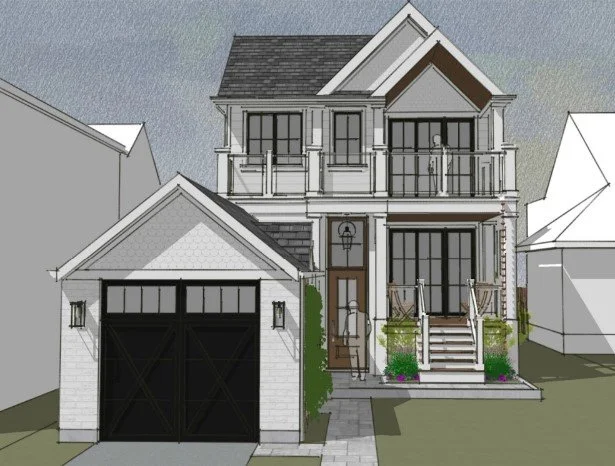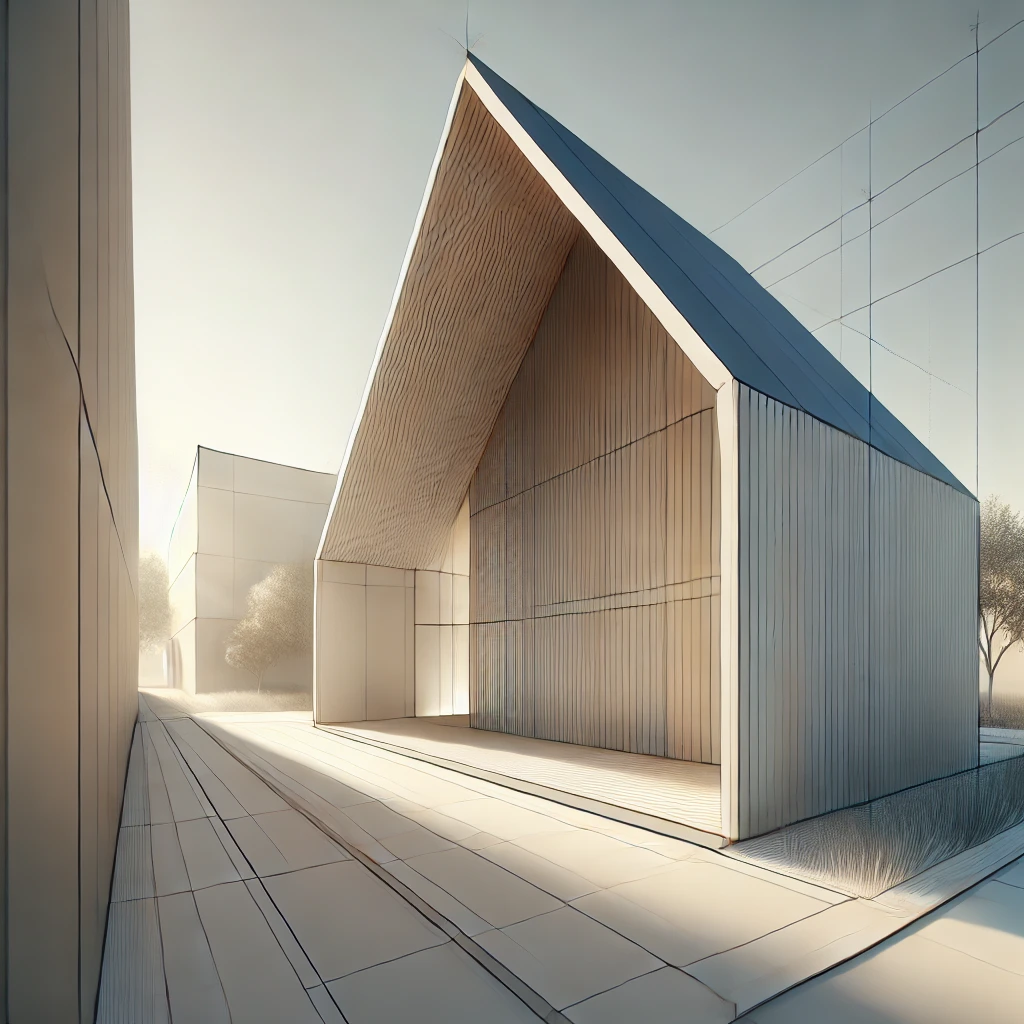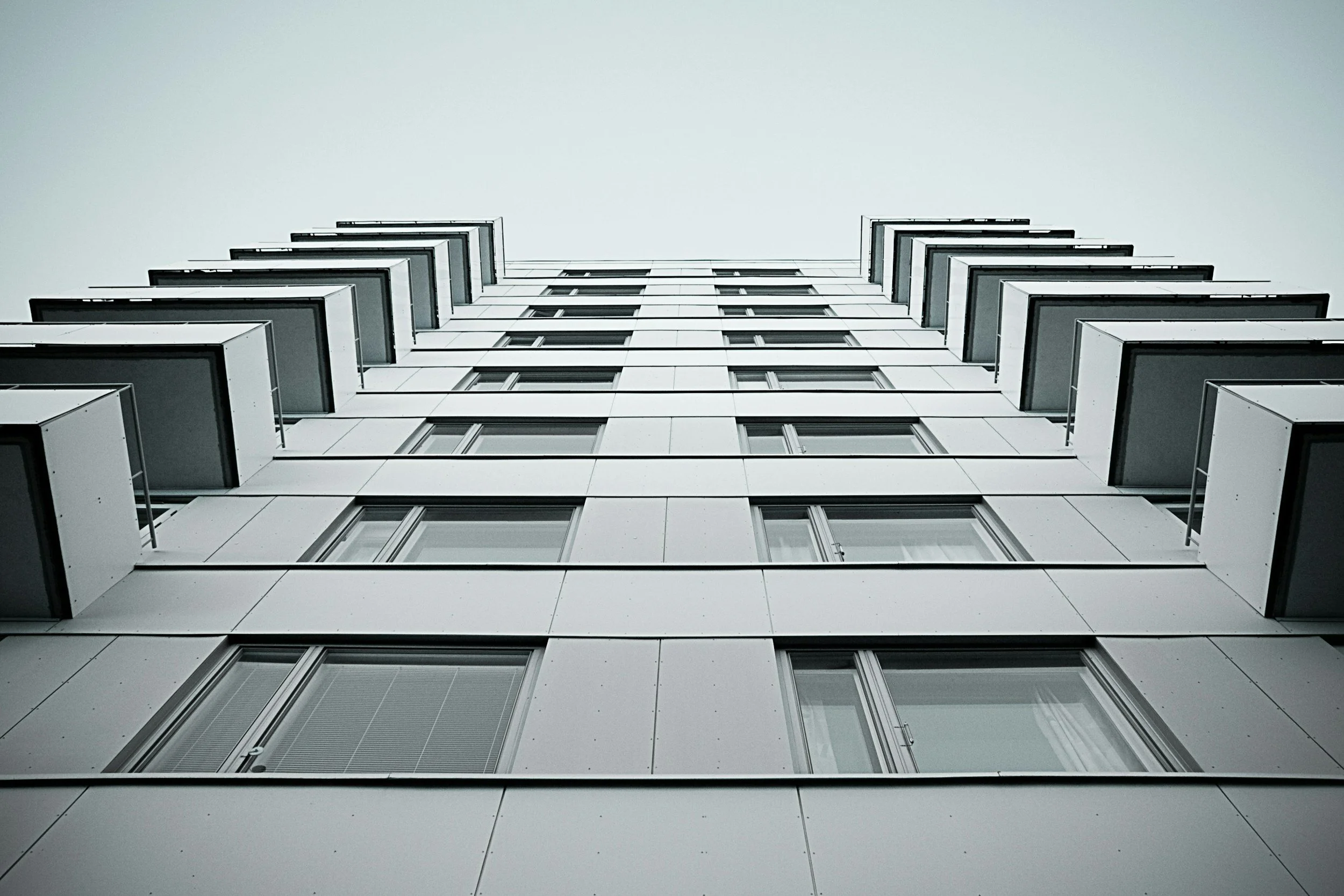Step-by-Step Planning Guide for Your Major Renovation or Home Building Project in Toronto
Embarking on the journey to build your dream home is an exciting but sometimes daunting process if you are unsure of how and where to start. As Toronto’s leader in quality home renovations and home building, we've taken the time to outline a step-by-step guide to help you feel prepared to navigate this journey smoothly.
By following these steps, you'll ensure that your home-building project proceeds without unnecessary hitches, leading to a successful and seamless path to your dream home. We at BVM Contracting are here to support you every step of the way!
Who is this guide for?
This guide is for anyone interested in completing a substantial renovation or home building project for their property (or properties) in Toronto. This guide will be helpful for others outside of Toronto but some of the steps are geared towards how Toronto handles building permit applications.
welcome to The Process to successfully Planning your dream home building project in Toronto
Step 1: Reach out to a Local General Contractor or Home Builder
The first step in your home planning journey is to find reputable General Contractors (GC) or Home Builders to bring through the process. This is crucial as a reliable Contractor will help streamline the entire process. Ensure they have:
Compliance with local regulations
Appropriate insurance and WSIB coverage
A solid and fair Contract
Proven past project experience
Don’t hesitate to ask for all this information upfront, a trustworthy Builder will have no issue providing it. Confirming their credibility early on will make the rest of the process much smoother. You will want to try to create a short list of companies based on which companies you feel will be able to help you through the remaining steps.
Be wary of the companies that require you to pay them a retainer to commit to working with them before they provide you any understanding of project costs. Would you buy a house without knowing the purchase price? Don’t get sucked into high-pressure sales tactics, do yourself a huge favour and start the planning process way before you want to start your project so you don’t fall victim to the “I’m booking up quick” sales tactics and the other slime-ball tactics builders use to get you locked into a contract with them.
Cost of Step 1 with BVM Contracting: $0
Step 2: Completing a preliminary Zoning Review
Before you can start planning the specifics of your home renovation or home-building project, you will need to understand what is possible to complete on your property. Some common questions include:
How high can I build?
How many storeys or levels can I build?
How far back can I extend?
How much building coverage am I allowed on my property?
How far away from the property line am I allowed to build?
How many units can I build?
A zoning review will determine the limitations and possibilities for your project based on Toronto's and the GTA's local regulations. Every neighbourhood has a different set of zoning by-laws that dictate what you can and can’t do on your property. At BVM Contracting, we ensure that a preliminary zoning review is completed as soon as possible to determine what you can do on your property. This serves many helpful purposes:
It allows us to set expectations with our clients very early on in the process about the potential roadblocks to certain projects on their property and if Committee of Adjustment may be needed
It allows us to hone in on the preliminary scope of work for the project which helps us in Step 3.
It allows us to get our trusted permit designers and architects involved to evaluate the proposed project and provide a second set of eyes to determine project feasibility.
If the client wants to complete a project on their property that is going to result in a zoning bylaw variance that will push the project application to Committee of Adjustment, we will let them know what the additional steps are during the permitting process and will usually only proceed if there is a good chance of getting the variances approved at C of A. Every client has a different risk tolerance so we try to take this time to determine how much of a risk the client is willing to take to get their proposed project approved.
If it is determined that there will be no zoning bylaw variances then we glide swiftly into Step 3. The word “Preliminary” is put into the title of this step because the zoning review is usually completed without an updated survey of the property. Brownie points if you have an up-to-date topographic survey of your property in question, but it is by no means necessary at this point as we can pull data from the Toronto zoning map to estimate the size of your parcel of land.
The preliminary zoning review will take a couple of weeks at its longest to be completed, sometimes even faster depending on how well your General Contractor works with their design partners.
Cost of Step 2 with BVM Contracting: $0
Step 3: Get Estimated Costing Information From General Contractor or home builder
Once you understand the zoning limitations of your property, getting estimated costing information from a General Contractor is your next best step. For existing home renovations and addition projects this usually involves a site visit to review the property and its existing conditions. If there is enough information about the property that is electronically available your General Contractor may be able to gather enough information (with your help) to expedite the estimating process.
At this stage, any necessary discovery work (such as footing analysis and exterior wall assembly analysis) should be completed to ensure the existing structure can be utilized for your substantial renovation or home-building project.
It is important at this stage to get multiple estimates for your project, so use your short-listed group of General Contractors or Home Builders from Step 1 to see what they can come up with for you. This will also act as an evaluation step to see which General Contractor is right for your project. Some things to consider when evaluating the estimated costing information from different companies:
Make note of which companies are taking the time to learn about the existing conditions of your home or property, they are likely going to have more accurate estimates
Be wary of the companies that only give you a “cost per square foot”. Per square foot of what? Does that include the garage? Does that include the basement? Inside or outside exterior wall? There is so much nuance with the way different companies do their pricing per square foot that it ends up being a horrible way to gauge project costs. If they are unwilling to take the time to give you an actual budget range then they don’t deserve your business.
Make note of the companies that are prompt with their responses and take the time to educate you about your project.
This step shouldn’t take longer than a few weeks to complete, maybe less depending on the complexity of the project and how much information is available. BVM Contracting completes free preliminary construction estimates and can turn them around in less than 2 weeks. The goal is to see if the budget ranges provided can be supported by your finances/budget, and the ranges will vary depending on how much effort is put in by each General Contractor. At this phase it is best to avoid thinking the lowest budget range is going to work for the budget, chances are that all of the work has not been accounted for yet by the company that gave you a low estimate, so for the purposes of Step 5, look to the budget that has more detailed information/costing to determine your likelihood of being able to afford the project.
Cost of Step 3 with BVM Contracting: $0
Step 4: Get a Fee Proposal from a Permit Designer or Architect
You'll need a Permit Designer or Architect to draw up the plans for your home and walk you through the process of obtaining a building permit. Obtain a fee proposal from a couple of BCIN Permit Designers and/or Architects (both will work for residential construction projects). This fee proposal should cover the cost of:
Capturing the existing layout of your home (in the case of home additions and renovation projects where the existing home remains intact to some degree) through the use of laser scanners.
Reviewing your property’s zoning bylaws to determine what changes can be made to get you a building permit for your project to help guide the decision-making process for creating proposed floorplans
Creating the necessary layouts for your proposed project through CAD software (AutoCAD, Revit, Sketch-up, or similar)
Many times the Permit Designer or Architect will represent you at Committee of Adjustments (C of A) to get variances approved. They would also do research to determine which variances have been historically approved in your neighbourhood to help strengthen your application. In other cases (or for more complex cases) it makes sense to bring in a planning consultant to help ensure your application with C of A has the highest chance of success. It would be a good idea to ask the companies/people you are getting fee proposals from if they would represent you at C of A or not to help understand what the costs would be and if you should be thinking about bringing in a Planning Consultant.
Coordinating the structural, mechanical, and building code information onto the drawings to be reviewed in a final application for obtaining a building permit. Usually Permit Designers and Architects hire third-party Engineers and HVAC designers to complete the structural and mechanical components of the project but make sure those fees are included in their proposal.
Coordinating the permit application to submit to the local municipality
At BVM, we have list of trusted and reputable Permit Designers and Architects who can help get you from concept to permit. We can refer you to some of the companies we work well with, but if you decide to go a separate route and hire your own that is perfectly fine. As long as your chosen Permit Designer or Architect allows us to work with them during the design phase then we are good to go!
Cost of Step 4: Variable based on fee proposals and how detailed you want the drawings to be
***Note that BVM’s costs up until this point is still $0!***
Step 5: Get Financing Approval
With estimated costs in hand from your Builder Partner(s) and Design Partner(s), the next step is to secure financing from your Bank or Lender. Ensure that the projected costs fit within your budget and include a contingency for unexpected expenses. It would be a good idea to have at least a 5% contingency over and above the total costs shown from your Builder and Designer, though 10% would put you in a great position. The last thing you want to do is go into a construction project without a financial safety net so make sure that you aren’t moving forward unless you have more than the amounts given to you in steps 3 and 4. Confirming your financing early in this process ensures that you can proceed without financial interruptions during the project and aren’t wasting your time on a project you cannot afford.
The most common sources of funding for projects are refinancing an existing mortgage, getting a second mortgage, a Home Equity Line of Credit (HELOC), or funding from private sources (family, friends, private investors).
Give yourself a good month to go through this exercise, it takes a surprising amount of time to work with a financial institution so if you have to utilize one to get financing please keep this in mind. If you already know where the money is coming from and it is exceeds the amounts from steps 3 and 4 then please proceed to Step 6.
Cost of Step 5: $0
Step 6: Obtain a Topographic Survey
A topographic survey provides detailed information about the contours and features of your property (trees, fencing, outbuildings, slopes, etc.) to overlay onto your permit drawings. This is crucial for the zoning review and for planning the construction as it will dictate the location, size, and height of your newly proposed home. While it’s ideal to obtain this early, you can wait until after securing financing to avoid spending money until you have financing approval. Your permit designer and GC can use educated assumptions in the meantime to determine what is possible on the property (Step 2).
The amount of time it takes to obtain a survey is anywhere between 4-8 weeks depending on which surveyor you work with and how busy they are. BVM Contracting has a very good relationship with our Surveyor to help expedite the turnaround time of obtaining a survey, so feel free to reach out to us to get a quote from our surveyor!
Cost of Step 5: $2 500-$3 500 + HST (from surveyor)
You Guessed it! BVM’s Costs are Still $0!
Step 7: the Design Process + Zoning Review
Usually, your Design Partner will be able to start the design process concurrently with the process of getting an updated survey so concurrently with Step 6 you can reach out to your preferred Design Partner to engage them to help with the design and permitting for your project. Usually, their pricing is broken down based on which phase they are in so you won’t be paying everything upfront. Instead, you will pay a certain amount for a deposit to retain your chosen Design Partner, then they will start their process. As you hit certain milestones your Design Partner will invoice you based on the amounts outlined in their fee proposal. BVM Contracting can help you review the fee proposal to ensure you understand what the total costs will be and any potential charges that might come up during the process.
Begin creating a preliminary set of drawings for your home. These preliminary designs will be used for the zoning review once you come up with a design you are comfortable moving forward with. The amount of time it takes to get to the point where you can submit the plans for zoning review varies, but expect it to take anywhere between 1.5 - 4 months depending on how busy your chosen design partner is and how many revisions are needed before you land on a finalized layout. The goal is to get the finalized layout submitted to the City as soon as possible for a zoning review to determine what your next step is (zoning certificate and straight to permit submission prep or Committee of Adjustment).
During this process, you can lean on your preferred General Contractor or Home Builder to ask questions about how certain design decisions will affect the budget for your project. This is a key component of the design process to ensure that your design is not going to put you over budget. BVM offers this service free of charge to help build trust with every project and ensure you are going to be able to build once you get your permit.
It is also important to note that Committee of Adjustment, if needed, will delay the process by many months if your design triggers variances. You can expect it to delay you by about 3-4 months, potentially more depending on which area of Toronto you are in and how many outstanding C of A applications are waiting for hearing dates (Scarborough v.s. North York, they have separate C of A hearings).
Last point is the debate between submitting or not submitting for zoning review separate from the building code review (they are separated in Toronto). We strongly recommend doing the zoning review because it will give you absolute confidence that what you want to build is allowed to be built on your property. This will, in turn, justify further investment into the design/finalization of the drawings in Step 9 and give your GC/builder the confidence to price out the project in more detail for you. There is a cost associated to getting a zoning review (25% of the total permit submission costs), but this cost is applied to the total amount once you end up getting everything submitted for the building code review.
Cost of Step 7: Variable depending on which designer you go with and how detailed you want the drawings
BVM Costs: $0
Step 8: Preliminary Pricing Based on Drawings
Once your design has been reviewed for zoning by the City of Toronto and you get your zoning certificate (or when you get approval through C of A) we start building the detailed scope of work and preliminary budget for your project. This will allow you to make any necessary adjustments to the design to fall more in line with your budget BEFORE you submit the design for a permit.
At BVM Contracting, we’re committed to providing our clients with realistic and accurate pricing tailored to their specific project. This step helps in aligning your design with your budget and provides a clear understanding of potential costs. This checkpoint is very important and should not be skipped (unless you want to have a permit in hand and a project that is already over budget). Even the best designers do not have a solid understanding of construction costs so it is your GC’s job to set expectations for where the budget will need to be based on your design. If adjustments need to be made they can be made to bring things back in line with your budget.
This process varies depending on the size and complexity of the project but you can expect this to take 2-3 weeks. This step can usually be completed concurrently with Step 9 but your GC will advise you accordingly based on their review of your budget and the drawings.
BVM Costs: Still $0
Step 9: Finalize Design for Permit Submission
Once you have a good understanding of the budget for your proposed design you will work with your design partner to finalize the drawings by overlaying the structural, mechanical, and building code information onto the drawings. This usually involves external involvement from a structural engineer and HVAC designer so this process usually takes between 4-8 weeks to complete. It is important to note that if you end up going through C of A that there will be a appeal period that lasts 30 days from when you get approval so you won’t be able to submit the finalized permit drawings until after 30 days from your hearing date. This usually works out because this process usually takes longer than 30 days to complete, especially when you are dealing with third-party consultants like Engineers and HVAC Designers.
Once the finalized permit submission package is completed the knee-jerk reaction is to submit right away, but if you have time we usually recommend you wait until after the construction budget is finalized and the contract is reviewed and approved (steps 10 and 11). The reason for this is so you have all of the numbers finalized and contract reviewed so you can make sure the project is inline with your budget and you have a confirmed start date with your chosen GC before spending money on the remaining 75% of the permit fees.
BVM Costs: You Guessed it, $0
Step 10: Review Finalized Construction Budget
Once there is a set of finalized drawings with the structural, mechanical, and building code information included BVM Contracting goes through the process of finalizing the scope of work/budget. This usually includes a site visit (for homes being maintained) with some of our subcontractors to understand the existing conditions of the home in more detail so we can finalize numbers and scope. We also send the drawings out to all of our vendors who will be supplying materials for the project to finalize material costs for the project.
This process usually take a few weeks but is a very important step in this process. It will give you ultimate confidence that what you see on your budget/scope with us is what you get, and if other Builders or GC’s are not doing this you can take note and use that in your decision-making process. If other companies are unwilling to put in the time to help you finalize your budget before the contract is signed then do they really deserve your business? It is tedious and time-consuming but ultimately gives you the peace of mind you need to move forward with your project.
BVM Costs: Rhymes with Hero Hollars
Step 11: Contract Review and Signing
Once the budget and scope are finalized, the last step is to review and sign the contract with your GC or home builder. This step formalizes your agreement and sets the terms for the construction process. We have put together a guide that outlines some of the key aspects of contracts in the residential construction industry that you can review further!
BVM Costs: At this point once you are able to make the most informed decision we require a deposit upon contract signing to hold your project start date. Usually $25 000 + HST for larger projects.
Step 12: Permit Submission
Once you have a finalized budget and signed contract with a start date confirmed, it is time to submit your permit applications. Ideally, permit submission should be done after the contract is signed, but sometimes tighter timelines requires submission beforehand. In Toronto, expect a permit processing time of approximately 8-9 weeks after submission. There will likely be a bit of back and forth between the Examiner and your Permit Designer/Architect so your designer partner must be getting the Examiner the required information as fast as possible to prevent being sent back to the bottom of their application pile.
Step 13: Time to Build!
With permits in hand and contracts signed, it’s time to start building your dream home!
By following this guide, you'll be well-prepared to tackle the complexities of home building in Toronto and the GTA. Each step outlined above will help you to stay on track, on budget, and aligned with your goals, resulting in a successful and satisfying home construction project.
BVM Contracting is here to ensure you have a seamless home-building experience. If you are interested in speaking with a BVM Contracting representative about your new home build, garden suite/laneway suite build, home addition, multiunit conversion, or substantial home renovation project please reach out to us at contact@bvmcontracting.com.
About BVM COntracting
BVM Contracting is a full-service General Contractor or Home Builder located in Toronto. We provide home renovation and building services for major home renovations (kitchen renovations, bathroom renovations, basement renovations, full interior renovations, home additions, lot severances, and new home construction). Our goal is to help guide our clients through the process of renovating their home, from concept to completion.
Further than providing General Contracting and Project Management for major home renovations, we also offer value-added services such as renovation financing, renovation rebate consultations and services, building permit and design services, smart home installation services, and real estate investor services.
To learn more about our offering by visiting our services page.







